Be Prepared for a Hurricane + Free Printable Emergency Binder Contents
Hurricane season is upon us and has been for a few weeks! The season is a long one as it generally runs from June 1st through November 30th each year. It won’t be long before we’ll observe or hear about more hurricanes headed toward the United States.
As a matter of fact, the weather experts issued a tropical storm warning earlier this week based on a storm off the coast of Northern Mexico and Southern California with sustained winds of 40 mph. That tropical depression system has since gone through the designation as a category 1 hurricane and given the name of Hurricane Hilary. This category 1 hurricane rapidly moved to sustained wind speeds of 75 mph and the intensity continues to increase. The area is now seeing winds of 85 mph or higher and will reach a category 3 hurricane by the weekend with winds possibly at 111-129 mph. If the trend continues, it will reach a peak category 4 by early next week, and winds speeds could reach 130-155 mph.
This is a Unique West Coast Hurricane
When we think of hurricanes, we generally think of storms that form in the Caribbean region, passing over Puerto Rico and Cuba before reaching landfall in Florida and moving up the East Coast. This storm charging towards the West Coast is expected to be the worst storm in over 80 years. It is anticipated to cause wind and flood damage throughout Southern California and into Arizona. It also is expected to trend north into Oregon. This is one big and powerful storm!!
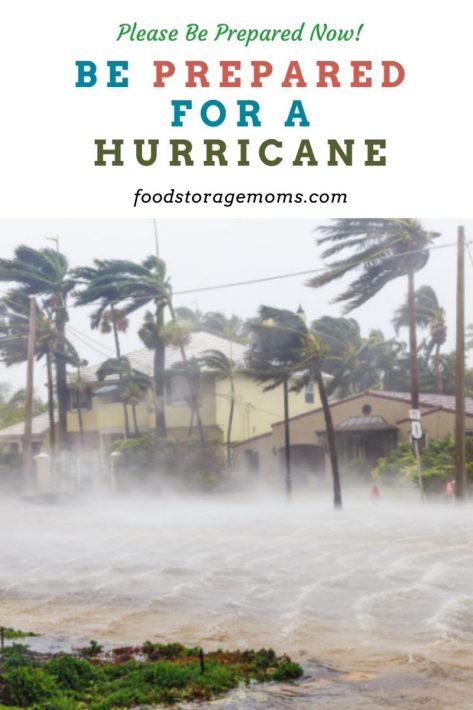
We hear a lot about climate change and the effect it has on current weather trends. The US is experiencing more storms, and the severity of those storms has increased. The National Oceanic and Atmospheric Administration (NOAA) decided to declare a week in early May 2022 as Hurricane Preparedness Week.
Hurricane conditions will prompt power outage challenges over a wide-ranging highly populated area before it dissipates. Hurricane warning alerts have already been issued for the Western US so people can be prepared.
Hopefully, if you live in that region you haven’t waited for a hurricane watch notice to be issued before you try to get your home, property, and family members ready to deal with the storm and its aftermath. Warnings are issued with a purpose, so take heed and button down the hatches, so to speak.
I wanted to update this post since hurricanes can be scary for those who have to endure them, and also for family and friends watching from the outside. If you live in an area where hurricanes are frequent, you are going to want to be prepared ahead of time for sure!
The Word Hurricane Means Something Significant to All of Us
It’s interesting to hear and contemplate the term hurricane as someone who has lived the majority of my life inland and far from any coastal areas. We lived in Southern Utah for a number of years and actually lived near a city called Hurricane.
I couldn’t understand why they’d call it by that name until one day we were shopping there when one of their famous wind storms came up. Palm trees were bent in half, dust everywhere, and power lines in some areas had dropped to the ground. Scary for sure!
They wanted people in areas affected by hurricanes to plan ahead and be ready for the pending hurricane season before the storm actually hit their location.
Although hurricanes typically make their first appearance in early June, it was anticipated that in 2022 it would be the 8th year in a row for a “named” storm to hit the coast of the US before June 1st.
Items I Recommend
- Gorilla Bar
- Hard Hat
- Steel Toed-Boots
- Generator (I do not have one)
- Work Gloves
- Solar Flashlights and Battery Type flashlights with extra batteries
Be Prepared for a Hurricane
When it comes to a hurricane, you can never be too prepared or too knowledgeable. Below, you will learn the following about hurricanes:
- What is a hurricane
- Parts of a hurricane
- Different Types of Hurricanes
- How dangerous is a hurricane
- How to Plan Ahead
- Items to Have on Hand
- How to Bunker Down
- How to Evacuate
What is a Hurricane
According to NASA, a hurricane is a large, swirling storm. It can produce winds of 74 miles per hour or higher. To give you an example of how fast that is, it is faster than a cheetah. A cheetah is the fastest animal on land.
Hurricanes form over warm ocean waters. Many times they stay over the ocean surface, but they can strike on land too. When it reaches land, it pushes an enormous wall of ocean water ashore. This is called a storm surge. These storm surges and heavy rains cause flooding, damage to buildings, and damage to trees and other foliage.
Parts of a Hurricane
In order for NASA to properly identify a hurricane, they must see all the parts of a hurricane. These parts include:
- The Eye: The eye of the storm is where the winds are light. The skies were partly cloudy and can be clear. The eye is basically a “hole” in the center of the storm.
- The Eyewall: The wildest part of the storm is the ring of thunderstorms around the eye. This is called the eyewall. It is the strongest part of the storm.
- The Rain bands: Those who don’t actually go through the hurricane but are feeling the effects are probably in the rain bands. Rain bands can stretch for hundreds of miles surrounding the hurricane.
The great thing about hurricanes, however, is that once a hurricane forms, weather forecasters can predict the type of hurricane it is, its projected destructive power, and its path. This can help you and others get ready for the storm once you hear the news about the anticipated direction it will take.
Different Types of Hurricanes
Now you might think that a cheetah is fast, but trust me, the winds of a hurricane can be much much faster. In fact, 74 miles per hour is actually a very mild hurricane. There are five different types of hurricanes. The types of hurricanes are based on wind speed.
Hurricane Types
Hurricane types are put into categories. Those who live in an area where hurricanes are frequent will know if they are dealing with a category 1 or up to a category 5 hurricane. Here’s the breakdown:
- A Category 1: Winds 74-95 mph and is faster than a cheetah.
- Category 2: Winds 96-110 mph which is as fast or faster than a baseball pitcher’s fastball
- A Category 3: Winds 111-129 mph and that is similar, or close, to the serving speed of many professional tennis players.
- Category 4: Winds of 130-156 mph which is faster than the world’s fastest rollercoaster.
- A Category 5: Winds more than 157 mph which is similar to the speed of a high-speed bullet train.
How Dangerous is a Hurricane?
As you may know, any hurricane can be dangerous. There will be some damage no matter what. However, as the hurricane category goes up, so do the risk and dangers as follows:
- Category 1: At winds of 74-95 mph, a category 1 hurricane is somewhat dangerous and will generally cause some minor or limited damage, depending on how long it tends to stay in place. It might include damage to roofs, shingles, vinyl siding, and rain gutters. You’ll also usually see some large tree branches snap off.
- Category 2: With winds of 96-110 mph, the category 2 hurricane starts becoming extremely dangerous. Winds will cause extensive damage. There is a bigger risk of injury and death. Expect to see near-total power loss as it passes communities in its path.
- Category 3: When winds get up to 111-129 mph it means there is a high risk of injury or death. Nearly all mobile homes will experience severe damage or be destroyed. The devastation will be extensive as trees will snap or be totally uprooted. Don’t count on access to clean water or the use of electricity for several days to weeks.
- Category 4: Considered a catastrophic storm as winds get up to 130-156 mph, there is a much higher chance of death for people and livestock. Most mobile homes will be destroyed. Even well-built framed homes will see severe damage as they lose roofs, siding, windows, trees, and other property damage like exterior wall loss. More power poles will be tipped over too.
- Category 5: Let’s pray that wind speeds don’t get above 157 mph. Category 5 hurricanes cause catastrophic damage. Most homes will be completely destroyed. Whole communities can experience near-total destruction. Most homes will become uninhabited for weeks to months. Get out!
How to Plan Ahead to Be Prepared for a Hurricane
Whether you’re facing a Category 1 or a Category 5 hurricane, it is important to plan ahead. You never know the extent of damage you’ll experience, how long you will be without power, or exactly what might happen to you or your property. Here are a few ways you can plan ahead:
Look for Possible Airborne Items
Check around your house and yard. Is there anything that can become airborne in a storm? Things like container plants, hanging baskets, tools, patio grills with propane tanks, lawn furniture, yard toys, bicycles, trampolines, and playhouses need to be secured. Make a list of all these things you’ll need to secure or bring inside.
Plan to Cover Your Windows
If you live on a barrier island or near the coast, you may have to cover your windows with plywood to keep them protected. You’ll want to do this BEFORE you’re under a severe storm watch. Here’s what you do:
- Get 5/8 inch exterior-grade plywood.
- Measure and cut pieces for each window.
- Mark which piece goes to which window.
- Pre-drill screw holes every 18 inches.
You’ll want to do this because wind, water, and sand can seep in, causing damage. Also, windows could break causing even more damage to the interior of your home, and may cause personal injury to you, members of your family, and family pets.
Stock Up to Be Prepared for a Hurricane
Obviously, stocking up is going to have to be done well before a hurricane is in sight. If you live in an area where you know hurricanes frequently visit, you will want to prepare long before you need to. Here is what you can start doing now:
- Store 4 gallons of water per person per day.
- Read and stock up on Survival Food Storage. Have plenty of non-perishable food stored away.
- Put extra clothing in water-safe containers. Plan on various temperature scenarios.
- Store extra cash in waterproof containers. If ATMs and gas pumps won’t work, you’ll need some cash.
- If you have an infant, be sure to have an inventory of baby food and a way to keep it cold if opened.
- Do you have a plan for your medications?
If you know of other things you can’t live without, make sure you have them in an easy-to-access place.
Make an Important Documents Binder
What happens to paper when it gets wet? Having a binder that can be kept safe from disaster and can easily be grabbed is an essential part of planning for a hurricane. You don’t want to be without your homeowner’s insurance policy, including proof of flood insurance, if applicable, after a hurricane has destroyed your home. This FREE Emergency Binder is ready for you to print: Free Emergency Binder Kit to make sure you have all your important documents on hand.
Items to Have on Hand
In addition to stocking up on things, it is important to know what you are going to need to have on hand in the event of a hurricane. You will want these items stored in a safe place and easy to access. Here is at least a partial list of hurricane items you must have:
- Cooking devices – eating utensils
- Blankets
- N-95 masks
- Latex Gloves
- Work gloves
- Toilet paper
- Hand sanitizer/soap
- Cleaning supplies
- Hygiene supplies
- First Aid Kit
- Solar phone chargers for each cell phone
- Menstrual supplies
- Flashlights for everyone along with backup batteries
- Toolbox with essential tools
How to Bunker Down
If you plan on staying through the storm and bunkering down, you know a hurricane is on the way. Hopefully, you have already planned ahead, you have stocked up on food and water, and have the necessary hurricane items discussed above. Here is what you need to be prepared for a hurricane if you are planning to bunker down:
- Make sure your bottled water is not older than 6 months. If it is, replace it. Prepare for at least 3 days, minimum supply.
- Update contact information. Get updated phone numbers, addresses, and meeting locations.
- Prepare a disaster plan. Talk to all your family members. Make sure they know where to go and what to do if you get separated during an evacuation.
- Prepare your car. Make sure you have a tire repair kit, a small shovel, and road maps in your car. Fill your gas tank prior to the storm. I’ve written a post about an emergency car kit. Check out the index above.
- Harvest your crops. The strong winds of a hurricane will destroy your garden. Go ahead and harvest all your vegetables that are ripe or close to ripe.
- Start securing items. Bring unsecured items inside or start tying them down. Use your list.
- Start boarding your windows. Now is the time to get that plywood up.
- Fill prescriptions. If you take medication, you are going to want to get all your prescriptions filled before the storm.
- Locate all your hurricane items. Make sure you know where your flashlights, rope, sanitary supplies, food supplies, and other items are. If necessary put them up high.
- Take out cash. You may have some cash stored, but make sure you take what you think you may need out of your bank accounts to last at least a few days. Remember, many electronic devices won’t be working, and that could include ATMs, credit card readers, terminals, and point-of-sale devices at stores, etc. Cash could become “king” in these situations.
How to Evacuate
If there is a hurricane heading your way that is stronger than a category 2, you may want to evacuate. Actually, you may not be given a choice as local authorities determine the severity of the pending storm and what is considered the “evacuation zone. Evacuation will be necessary if you live in a mobile home as most will not withstand a hurricane. If you are planning to get the heck out of Dodge, here’s what you need to do:
- Leave early. You want to leave while you still have daylight and before the big rush starts. Roads become clogged very quickly if an evacuation order is given. Hopefully, you’ve planned where to go.
- Turn off all your water at the main valve (usually found in the garage).
- Keep your freezers and refrigerators on but surge protected in case the power goes off then back on.
- Tell someone you’re leaving. You want them to know how you are traveling, where you are going, and who is with you.
- If you have pets you can’t take, put them on the highest level of your home with a few days’ worth of food and water. You may want to consider training your pets to use an absorbant pee pad or litter box.
- Bring water and non-perishable food. If driving, have enough for the long haul.
- Grab your binder with all your important documents.
- Lock your doors, including the garage door.
Who Normally Predicts Hurricane Activity?
It may seem strange, based on their location in the Western States, but researchers at Colorado State University (CSU) have been predicting and tracking hurricane activity for years. They expected the 2022 hurricane season to be a very active one and seemed to be right on. Usually, the season will include three major hurricanes, which are hurricanes with a category of 3 or higher rating. I’m not sure what the CSU team is expecting as far as hurricanes this year. In 2022 they predicted 19 named storms and nine lesser hurricanes.
Besides the NOAA, hurricanes are monitored and activity is predicted by The Weather Company (TWC). Their predictions are very similar to the CSU forecasts and similar to 2021. They predicted 20 tropical storms, eight hurricanes, and four major hurricanes during 2022.
The scary part is that the storms are not only more frequent but also more powerful. Historically, the average storm frequency from 1991 to 2020 was seven hurricanes and three were considered major. In the last century, only 52% of category 3 hurricanes made landfall, but meteorologists suggested that in the 2022 year, that percentage would be a whopping 71%!
Does the Frequency of Hurricanes Mean Much More Destruction?
The Florida Director of Emergency Management, Kevin Guthrie, tells people not to get too caught up in the number of hurricanes. He recently reminded attendees at a convention that the 1992 hurricane season was predicted to be a fairly mild one. The challenge was, that the very first hurricane of that season was Hurricane Andrew, a category 5 storm that proved to be the most destructive in Florida history, and the 3rd strongest hurricane to ever hit the U.S. mainland.
How Do Hurricanes Get Their Names?
Since 1953 the names for tropical storms have come from six lists that were generated at that time. So, in essence, you might see the same names given every six years. The only exceptions are if the name was retired due to the severity of the storm based on loss of life and property. Some retired names are Katrina, Dorian, and Irma.
The names listed for 2022 included Alex, Bonnie, Colin, Danielle, Earl, Fiona, Gaston, and Hermine. The list goes on to include Ian, Julia, Karl, Lisa, Martin, and Nicole. If the season was as active as expected, they anticipated using Owen, Paula, Richard, Shary, Tobias, Virginie, and Walter. Keep your eyes and ears open, it could be a wild storm season in 2023!
Final Word
Whether you plan to bunker down or get out of Dodge, a hurricane can be scary. However, luck favors the prepared, so make sure you know how to be prepared for a hurricane.
If you have any questions, concerns, or advice about hurricanes, please share them in the comments below! May God Bless this world, Linda
Copyright Images: Hurricane Irma AdobeStock_171083324 by Satoshi Kina

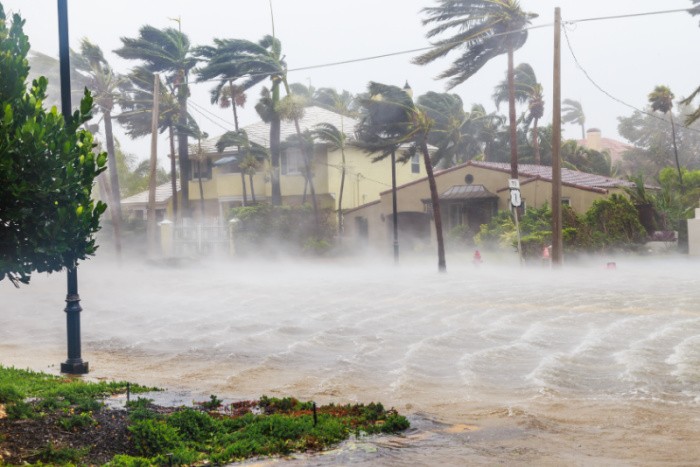

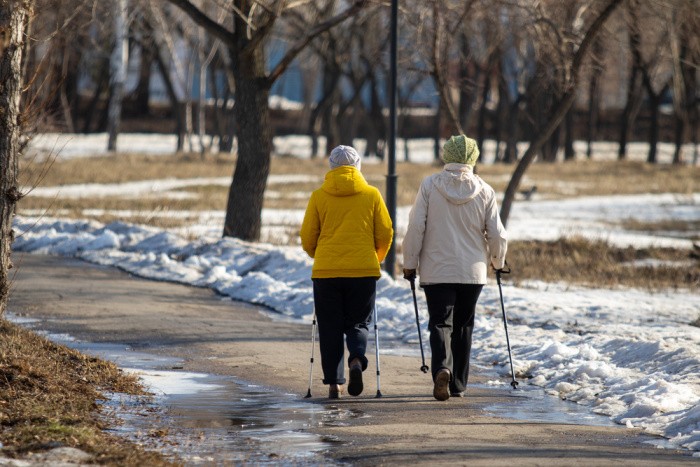
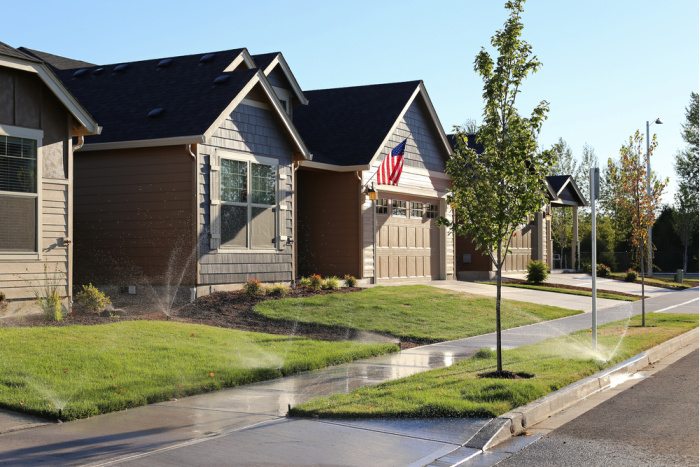
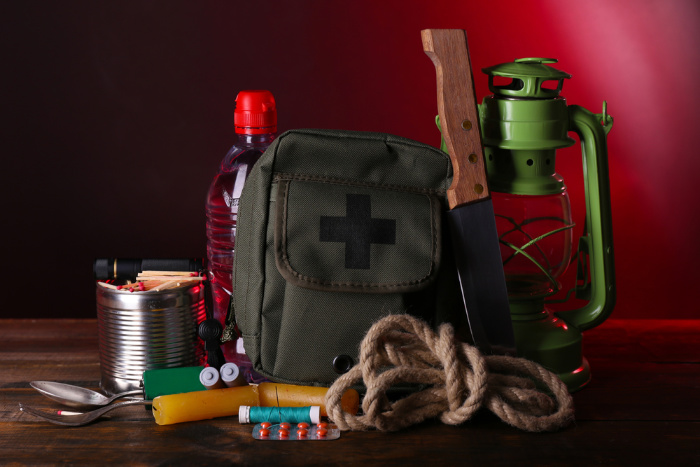
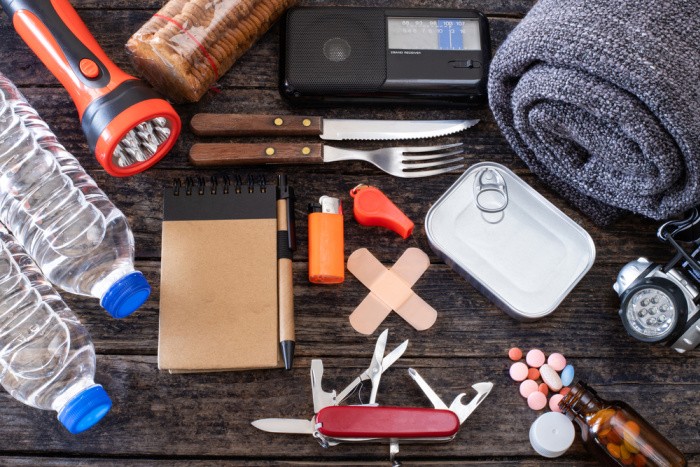
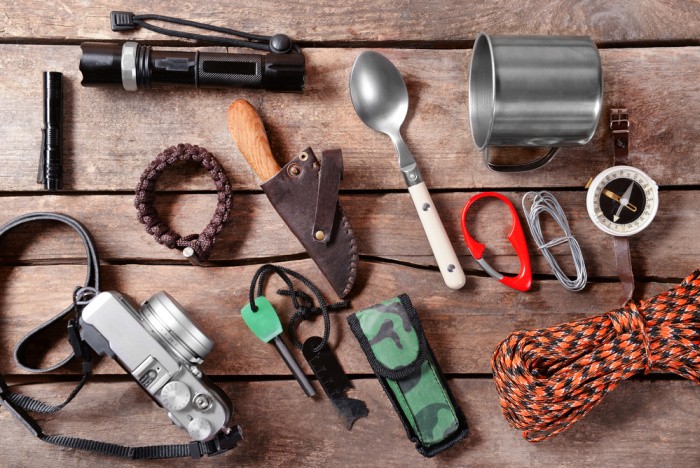
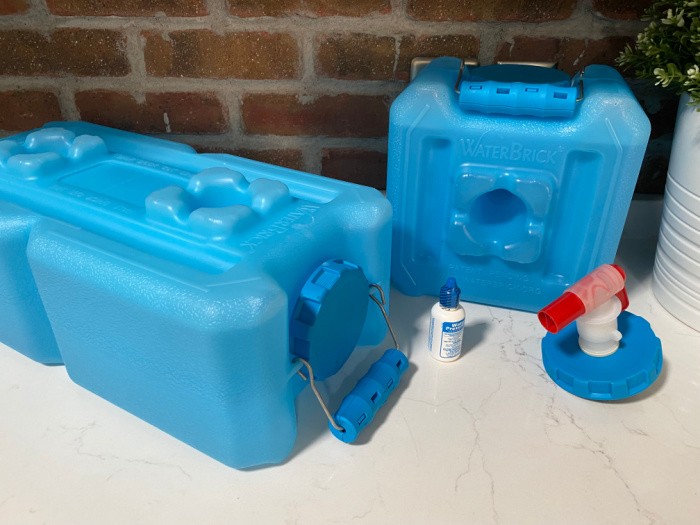













Just a reminder for folks evacuating about their freezers: if power is restored before you get home things may refreeze after being thawed too long. A quick and easy way to check this is to freeze a mug or soup container of water then put a quarter on the ice. If the freezer thaws the quarter will drop to the bottom of the container and even if things refreeze after power is restored you can see at a glance what happened….you can then make informed decisions about the safety of items in the freezer.
Hi DMWalsh, thank you, for a good reminder about the freezers!! I love this tip! Linda
Great job as usual, Linda,
As someone who has lived most of my 73 years along the Texas coast, I have survived more hurricanes and tropical storms than I care to list, up to a Category 5 that was never recognized as that because the official wind speed indicator at the Corpus Christi International Airport was destroyed when the winds were over 140MPH. However, it was quite obvious that the winds had increased greatly after that indicator was blown away, That was Hurricane Celia in 1970. While hurricanes are destructive, tropical storms can be destructive as well because of torrential rain causing widespread flooding. I could probably write a book about my experiences, but won’t do it here. LOL!!
Hi Harry, thank you for your kind words, my friend! If you ever want to share your experience with hurricanes or tropical storms, I would love to share them right here!! I did interview a young man who my kids grew up with that survived Katrina. He was going to school at Tulane. It was scary for them to get out of town. Luckily his parents bought plane tickets for them. Crazy times, Linda
Before getting out of dodge you can wrap your food items in plastic grocery bags for your freezer and kitchen freezer. This helps to cut down the mess from defrosting. We learned that after Hurricane Rita in 2005. Food was spoiled, could not get odor out of outside freezer, so we buried the food, bought a new freezer. Now we have a RV so we take what we have left in the house freezer and put inside the RV in which we bought a small freezer. To this day I always wrap my foods because you never know when the power will go out. As far as flooding, you will lose everything in your freezer. Flood water can be contagious. And a reminder to get a generator and store it properly and how to use it safely.
Hi Judy, great comment, thank you for sharing. I have heard you cannot get the smell out. I have lived through a flood, what a mess, not our house, but our neighbors. Great tip on the RV, getting a freezer for it. Love it, Linda
Regarding hurricanes and tropical storms – Weather forecasters say “Run from the water, hide from the wind”. That’s because you are much more likely to die from flooding than the wind. Water levels can rise incredibly fast, trapping you in dangerous situations. Wind speed is somewhat more predictable with the size of the storm. Forecasters will say how dangerous winds and water are expected to be and if you should evacuate. Also be aware most insurance policies don’t cover flooding, even if it’s just a local creek that overflows. Doesn’t matter where you live, you probably need a separate policy for flooding.
Hi Kay, you are so right on the flood insurance!! You must buy a separate policy. We had a lot of flooding in Farmington, Utah in 1983! Southern Utah had more flooding than I have ever seen, glad I’m not living there anymore. I love that weather forecaster statement!! Linda
We live about 350 miles from the southern coast, we often get bands from multiple storms. It is frustrating that once the storms hit initially and are inland, the post on storm tracks /projected impacts on inland disappear from information.
The retrograde storms that come in from the East often do the most damage and flooding inland where people usually don’t see extreme rain.( we got 10 inches- we did not flood in our home but the neighbors fence was damaged. I had 2 steel fence posts- 6 ft long in the drainage ditch that runs along the road in front of my home.- same storm – years ago and much was damaged( the Grand Ole Opry building) in Nashville Tn( not my area- but an example.)
I advocate,, if you have a big storm, coming toward you,.. tropical or hurricane clean out all culverts and ditches near to you and if possible close to any creeks or drainage ditches near your home.this will take some time but definitely valuable..also do a hurricane drill esp with young children. They need to know you have a plan- for xyz, and be able to cooperate and not be panicked.
always place a bucket or two,in the attic, and verify everyone can get up safely…(anyone who can not climb stairs should be evacuated,PERIOD.) and fill with cleaning supplies and tools, if you are staying home.
also some attics are not meant for weight on every surface. If you have one of those-make sure you place something to support weight of the heaviest person in your house- over an area you would use to shelter-upstairs in case of flooding… it can be really uncomfortable standing on 2×4 or 2×6 ceiling joists for more than a short time. even small children could fall thru a plaster or drywall ceiling..
You will need things to use for clean up, quickly after heavy storm, esp flooding.. and if you become trapped in the house in a flooded area, you may need something to cut thru the roof to make an escape hatch…..axe, hatchet, crow bar, hacksaw, 3 lb sledge could all be useful under different conditions.
.. If you have small, young children- or animals. they will need a harness- to facilitate extraction, especially if you require a rescue. or there is extreme wind…. Having a way to anchor them and you could be the most necessary of things.
There is NOT a place to leave animals in a hurricane zone.If you are fleeing, take them and their needs with you. The storm will likely have effects even to where you are fleeing.Feed may not be available. especially over a weekend.
If they are yours- you are responsible for them.. Others should NOT be required to put their life in peril to go back and get animals YOU left behind.
If you don’t think you can evacuate your animals you should not have them in the first place.. People who own horses have horse trailers… you may not have that but you need to be planning ahead for this, NOW. Having a plan for complete evacuation… is necessary. Practicing it on short notice could be life saving to you and your beloved animals… getting a trailer that can be sheltered- even if by a tarp during travel and storm events, should be a prep for evacuation zones.
Just some things to think about…. Just Sayin’
Hi Denise, I LOVE LOVE LOVE your comment! Thank you for sharing! You are so right! Linda
I believe it is time for me to thank God we live in Western New York. We may have terrible politicians and feet of snow and temperatures below freezing….. but we don’t have hurricanes, tornadoes, wide spread forest fires, and earthquakes. For the most part, if the roof is good, the snow stays outside. The power might go, but the generator kicks on automatically. I am more blessed that I thought.
Hi Chris, what a great comment, you are so blessed to be living where you live! That generator is AWESOME! Linda
Linda, a good, reliable generator is one of the first preps anyone who can be impacted by a hurricane should have–along with extra fuel for it. But I’d add heavy, preferably steel toed work boots and a hefty, long crow bar to those preps as well. They come in handy while searching through debris in the aftermath.
Commenters had some great tips as usual, but I think the best tip is to evacuate if at all possible.
Hi Ray, oh you are so right about the generator and extra fuel. My dad used to wear steel-toed work boots, good ones, thank you! Oh, the crowbar is a must too! Adding these, thank you!! Linda
Harry,
I was part of the cleanup effort after Celia went through. I still remember a shrimp boat parked on top of one of those Spanish style mansions along Ocean Drive.
My buddies and I camped on Mustang Island for two weeks, after the storm. All that was left of the homes were the stilts they were built on.
Okay Fearless Leader! Goal Zeros have been charged. Patio furniture is stored in garage. Can’t do much with the planters on the patio – just too darn heavy – but I did get the ripe tomatoes off the plants. A few peppers but they aren’t even close to picking yet.
I’ve gone back to your book, of course, and reviewed storm/heat preparations. Temperature went from 101 down to 81 in the last hour. Wind is getting serious but still few actual rain clouds. Lots of puffy white clouds and plenty of thunder (so I’ll get off the computer now).
Thanks for everything you do!
Cheryl
Hi Cheryl, there are some wild storms coming to the California coast! That’s crazy the temperatures went from 101 down to 81! The rain is pounding right now, and it’s going to get worse. We must all be prepared ASAP! Thank you for your kind words, Linda
Now Linda, you know we all love you but if you are supposed to bring enough for everyone! We can watch the rain go to the west of our house and the east of our house. Watching the lightning and hearing the thunder we go inside and all we get is wind. *sigh* So Sad. One of the neighbors came by and said he quite literally counted 6 raindrops on their car.
Right now we are more concerned with losing power. Ryobi fans will be grand. Goal Zeros will keep the Fridge and Freeze for a few days. We are so very happy got the Briefcase charger for the GZs! We will be able to keep everything charged if needed!
Yesterdays weather wasn’t exactly fun either – high of 107 and dropped to 82 overnight. Nope, not fun at all.
Everyone stay safe and pray for Florida and the East Coast. Looks like hurricane season is going to get started. Monsoon supposedly started here in July but we haven’t had more than an inch with all storms combined! Almost 2″ less than last year at this time.
Hi Cheryl, oh if I could afford a warehouse to keep filled I could feed a lot of people. But of course, that’s not going to happen! LOL! It sounds like you are super prepared for a power outage, I love hearing this! You rock! Linda
In my island we experienced Hurricane Maria, category 5, in the center of the island the sustained winds and the rafagas were stronger because of the height. The eye passed through our area. Nothing happened to us or our relatives, the houses are concrete and in non-floodable places, but many lost everything. The whole electrical system collapsed and therefore also the water. From the coast they had to come to the center of the island, because there was no supermarket or anything standing to sell.
Hi Migdalia, oh my gosh, thank you for sharing what happened with Hurricane Maria. I remember hearing from my readers in Puerto Rico, that it was hard to get supplies. One sweet lady in particular told me she was glad she had followed my blog for many years because she had stocked up water and food. There were so many fatalities in Hurricane Maria, so sad. This is my biggest concern, or at least one of them, no electricity, then no water and the sewer lines do not work. It was hard for people to get first aid supplies and the postage to ship them to Puerto Rico was so expensive. Category 5 is so bad. I’m glad you made it through that one. Thank you for sharing. Linda
Although we are not getting the solar system we planned on we are getting one that will be totally perfect for our use. It is a lot cheaper than the original one and we can get a rebate from our state by buying this one. Of course it is minimally less expensive than the original one but it is a very reputable dealer. Every time we had a question we were able to contact the dealer and he would take hours walking us through every little detail. The original dealer we were going to get the system from would never answer our calls and we said enough is enough.
Hi Jackie, oh I hope this one works for you, those solar companies can sometimes be frustrating. The one in Las Vegas, Nevada, was ready to go and then Nevada Power didn’t honor the savings. The companies went bankrupt. I’ve been leary about them ever since. I’m sure you have found a good one, things have changed since then. Linda
I have never been in a hurricane and don’t look forward to one but we are being warned here in New Mexico of one that will be coming from California. I really worry about all the people who will be part of this while praying it won’t hit where we live. We live in the mountains although not the high mountains. We are praying for everyone who will be in the path of this
HI Jackie, my daughter’s flights were canceled from Boise Idaho, she moved her daughter (my granddaughter into her dorm). Now her flight has been moved to Monday, I’m not sure that flight will not be canceled. The storm is headed where she lives in Newport Beach, CA. (The California Coastline). We are praying the storm dies down and doesn’t stay a Category 4 Hurricane/Tropical storm. So many people are stranded because of Mother Nature. Linda
Linda:
I will be praying for you, your daughter and Granddaughter. We were supposed to get some from Hurricane Hillery but now they say we may get some rain but nothing serious. We are supposed to get our solar installed in 3 weeks. We are already approved by our Electric company.
Hi Jackie, thank you for your prayers. Luckily my daughter mad it home from Boise, Idaho to Southern California. She had tow stay 2 extra days because of Hurricane Hilary. So far, so good. We will all need to pray for the rest. of the country and world. There are so many wildfires it’s way out of control. May God bless all the first responders, when will this ever end? I do not know. The store shelves are empty in California, hopefully they will be restocked soon. The roads are closed in many areas. I never thought I would see anything like this in my lifetime. Linda
Hi Linda:
Well we got hit by a sidewinder of Hilary. It started raining here about midnight and it is still raining as far as I know. A lot of the roads are flooded and you just can’t drive through them. My husband went to Lowe’s hardware and was going to go to Lowe’s Grocery on his way home and there was no way he could get on the road with all the water besides which he would not have gotten back on the road to home if he had tried.
Hi Jackie, oh my gosh, I’m glad he decided not to go to the grocery store. This year has been tough with wildfires, flooding, and hurricanes. Stay safe, and stay home. Linda